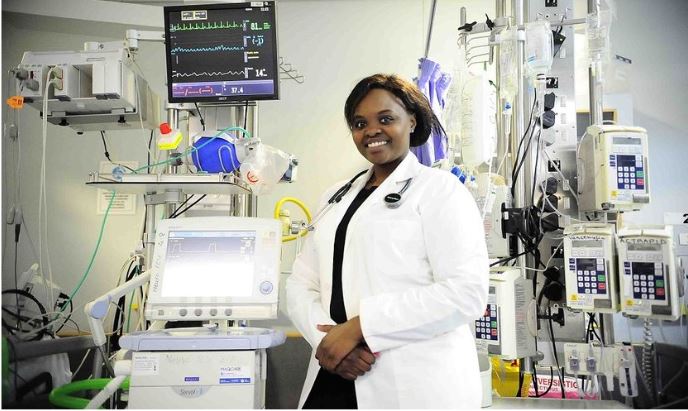
Meet Dr Ncumisa Jilata’s Africa’s Youngest Neurosurgeon
Dr Ncumisa Jilata’s journey from a childhood classroom in Mthatha in the Eastern Cape to becoming the youngest neurosurgeon in Africa may have begun with a glass of water.
That feeling of sipping a cold drink, holding the glass in your hand, and the rush of thirst-quenching pleasure, was a visual picture given by Jilata’s Grade 11 biology teacher that began a life-long love of neurons.
“The way he introduced this concept of impulses taken to the brain and the circuitry of neurons, I thought there’s nothing that could top this,” she tells Spotlight.
Fast forward through finishing matric, completing university, and graduating with a prestigious fellowship, by the age of 29, Jilata had become one of just five Black female neurosurgeons in South Africa.
By the age of 29, Jilata had become one of just five Black female neurosurgeons in South Africa.
That remarkable achievement, however, came with challenges. A young black woman in a male-dominated field, she had to work doubly hard to be taken seriously in a career where there were few role models before her.
Now, she is working to change that.
By mentoring future generations of black women neurosurgeons and bringing science to communities, she’s hoping to shape a new future for the field.
Before her Grade 11 teacher and his glass of water, Jilata was on a completely different path. She had ambitions to become a chartered accountant. But having changed her mind, she was determined, even if that meant overcoming many obstacles.
Jilata had to take extra subjects, increase her workload and sacrifice some of her friendships for her studies. “Having people around me who believed in my dreams was important,” she says.
Among those people were Jilata’s parents, who had, from a very early age, instilled in her the values of hard work and leadership. “My upbringing played a crucial role in my success because I looked up to my parents who are both hard workers,” she says.
“They motivated me to study hard, as my degree would be the key to unlocking my future.”
And they were right.
Jilata graduated with Bachelor of Medicine and Bachelor of Surgery degrees (MBChB) from Mthatha’s Walter Sisulu University (WSU) in 2009. This was made possible with support from her father, who was also a lecturer at WSU and a bursary from the Eastern Cape government.
By 2017, she had completed her fellowship with the Council of Neurosurgeons of South Africa, which was self-funded, officially earning her title as one of five black South African women in the field and the youngest neurosurgeon on the continent.
Those achievements earned her headlines and even a special mention from then-Deputy President Cyril Ramaphosa in his address at the Presidency Budget Vote in Parliament’s National Assembly.
Naming her as one of SA’s women breaking barriers, he thanked her “for inspiring us, motivating us and challenging us with your [life] and your determination… demonstrating what is possible with perseverance, courage, collaboration, and partnership”.

